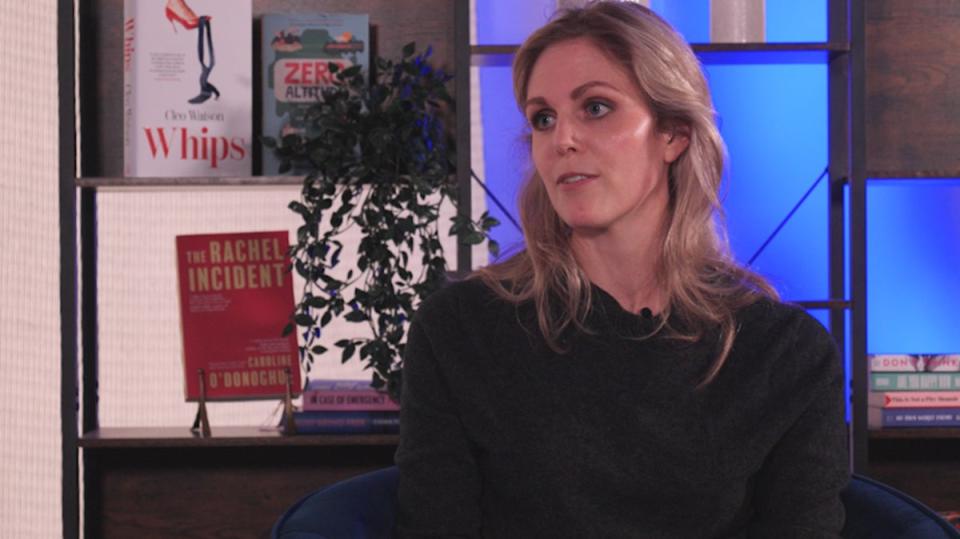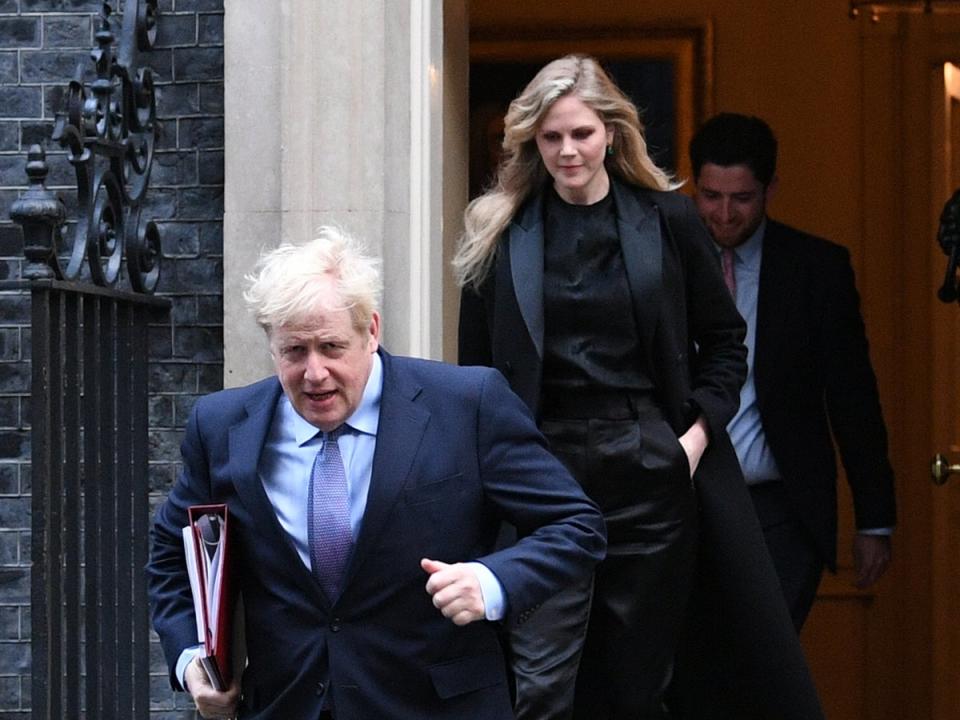The woman inside Downing Street who Boris fired gives her verdict on the ex-PM
The former deputy chief of staff to Boris Johnson has ignited the latest Partygate allegations engulfing the former prime minister by saying the scandal risks being the “last nail in the coffin” of his political career.
Cleo Watson, who says she was like a “nanny” to the ex-PM back through the Covid lockdown, also gave him just five out of 10 for morality in her first television interview to launch her new book Whips, a raunchy bonkbuster set in Westminster.
She warned that “dozens” more people could face investigations if the police decide to launch a fresh probe into alleged Covid breaches at Chequers.
Nicknamed the Gazelle for her elegant 6ft stature, she worked alongside Mr Johnson’s former chief adviser Dominic Cummings - and like him, she was fired by Mr Johnson.

In her interview with Independent TV, she talks candidly and revealingly about life inside No 10 with its tensions, infighting and partying. While critical of Johnson, she expressed embarrassment at her own police fine for being present at a No 10 party during the Covid lockdown.
She also suggested it would be “respectful” to the Covid bereaved for Mr Johnson to pay his own legal fees now that he is earning more than £1m a month from his speeches.
She also:
claimed the former prime minister was “defined by Partygate”
revealed illicit encounters were commonplace at party conferences
and warned No 10 was the kind of building where it was difficult not to “rub up against each other”
The Partygate scandal erupted again when it emerged that Mr Johnson had been referred to police over fresh claims he broke lockdown rules.
The allegations centre on around a dozen gatherings at No 10 and at the prime minister’s grace and favour country house, Chequers.
New details were sent to the police by the Cabinet Office, prompting fevered speculation over who might have been at the alleged events, including Mr Johnson and his wife Carrie’s closest allies.
Asked how many people could face a police probe if an investigation is launched, Ms Watson said the figure could be “dozens”.
She said: “It is up to them to decide if they want to investigate this but it's two different [police] forces. And, as I understand it, they're looking at multiple events. So you know, it could be dozens [of people].”
The latest development could be the final blow for Mr Johnson’s political career, she said.
“I think so,“ she said. “It's my view that he's making his money, he's writing his books, he's got a lovely new baby on the way, why would he want a further political career? But if he does want to this is potentially the last nail in the coffin.”
Describing the man she saw in Downing Street every day, she painted a vivid picture of someone who was “disorganised … an interesting character study to be around and ambitious”.
When asked what she would score the former prime minister out of 10 for morality, she said: “Five”.
And she warned that he would never be able to escape the Partygate scandal.

Mr Johnson was fined by police after stories emerged of parties in No 10 during lockdown and the resulting furore saw him eventually ousted from office by his own Tory MPs. A probe by top civil servant Sue Gray later ruled there was a “serious failure” of leadership to abide by the “standards expected of the entire British population” during the pandemic.
Her long-awaited report also concluded there was “too little thought” given in Mr Johnson’s No 10 into the risks the gatherings presented to public health and how they might appear to the public.
Asked about his rule-breaking, Ms Watson said: “He’s obviously defined by Partygate, so that's a pretty obvious part of the rules. But in terms of political rules over the years, he’s defied them at every point, and it's worked for him”.
She also suggested the former London mayor was a tragic figure.
“I think there's always something quite tragic about things not panning out for someone the way they wanted them to,” she said.
“He obviously wanted this so badly and yeah, that is hard, but these are his own mistakes.”
Covid had offered him “an opportunity to defy his detractors and show himself as someone incredibly diligent and hardworking and decisive, and so, as difficult as it is and I do feel for him on that, it must be pretty devastating shy of 60 to be having to kind of reassess a lot of your life. But the buck does stop with him”.
Ms Watson said she “couldn’t apologise more” for the event in Downing Street for which she also was fined by police. But she said it was a “great shock” to read about instances of events in No 10 when people were “partying and being sick and throwing wine up the walls”.
She suggested that Mr Johnson, who has made millions of pounds since leaving office, should pay for his own legal fees as part of the parliamentary inquiry into Partygate.
“I think it would be very respectful, particularly with these new allegations coming forward, if he did pick up the bill personally … I think it would be respectful to lots of Covid bereaved families in particular.”
It emerged on Wednesday that Mr Johnson had sacked his government-appointed defence team after the Cabinet Office passed information to police on the latest alleged breaches.
Ms Watson also suggested that the annual conferences held by political parties every autumn were a hotbed of illicit sex.
There was, she said, “the opportunity” for sex in parliament, adding: “It's obviously got nooks and crannies. There's alcohol, they {MPs} are there late. I mean, there are those kinds of opportunities for sure.”
“Every party conference, regardless of the party, people make fools of themselves,” she added.
She also described No 10 as a “strange building” in which it was difficult to “not literally rub up against each other. And I think that's where some of this trouble {Partygate} set in. Perhaps not helped by the culture being set from the top.”


